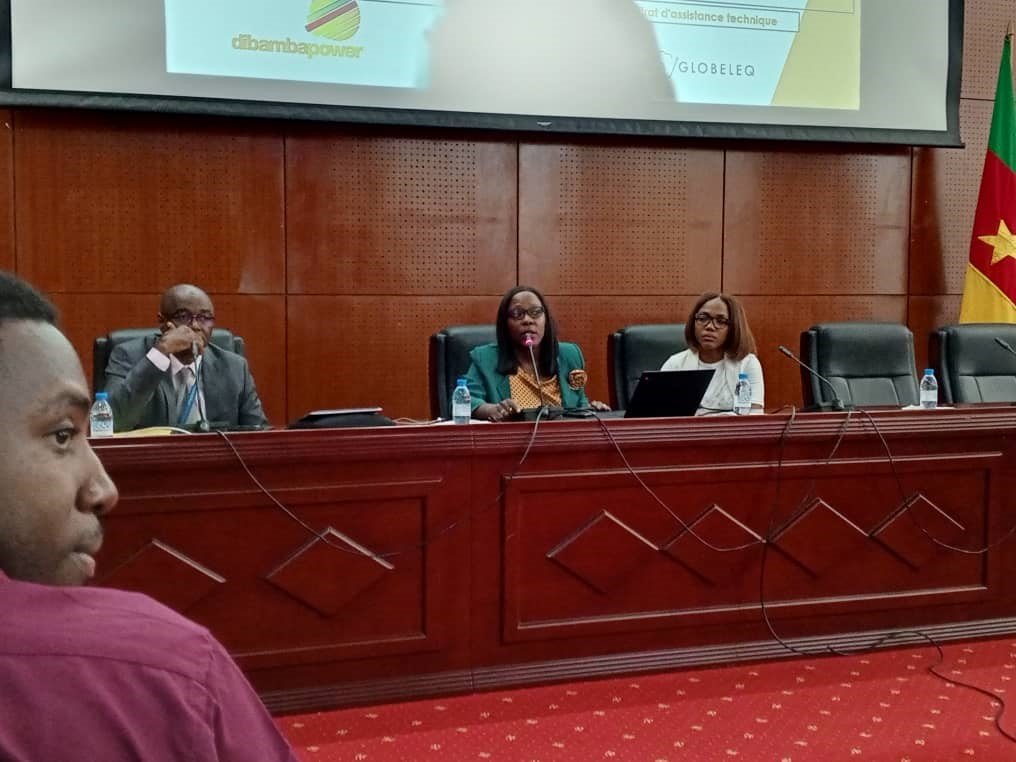By Etienne Mainimo Mengnjo
British independent power producer, Globeleq, on February 24 presented the various efforts made, challenges faced, and opportunities in the energy sector in Cameroon.
This is the outcome of a press conference in Yaounde on the sidelines of the 9th edition of the International Exhibition for Enterprises, SMEs, and Partnership of Yaounde, PROMOTE 2024. Globeleq Cameroon operates two power plants in Cameroon.

Globeleq Cameroon’s Director of the Dibamba Plant, Vanessa Mougnutou; Human Resources Director, Richard Iffot; and Head of Procurement, Marie-Claire Ngo Bayemeck were present during the press conference.
Portraying the UK-based company as a major player in electric energy production in Cameroon, Vanessa Mougnutou, representing the Director General of Globeleq Cameroon, stated that the company, founded in 2002, is a majority shareholder in the Kribi gas power plant (216 MW) and the Dibamba fuel power plant (86 MW) in the country, holding 56 percent shares while the remaining 44 percent contributed by the Cameroonian government.
Indicating that Globeleq Cameroon mission is to provide more reliable, quality, and affordable electricity for households and businesses in the country, thereby fueling its economic growth.
Speaking during the press conference, Globeleq Cameroon officials stated that the company has developed and operates the 88 MW Dibamba heavy fuel oil-fired power plant located in Yassa-Douala. The plant supplies electricity to the national distribution company, ENEO, under a 20-year power purchase agreement. Mougnutou mentioned that the Dibamba plant, commissioned in 2009, was initially designed as a backup power station to meet the increasing demand for electricity.
On the other hand, the Kribi Gas power plant, situated in the Mpolongwe neighborhood in Kribi, generates a 216 MW electricity supply. Commissioned in 2013, the plant runs on natural gas with light fuel oil as a backup. The officials also noted that a project to expand the Kribi power station is currently under development and will be capable of generating a total of 330 MW of natural gas-fired electricity once completed.
Mougnutou further explained, “Electricity is produced from heavy fuel oil and light fuel oil, supplied by the customer ENEO. The electricity produced is sent to ENEO via the transmission network managed by the National Electricity Transmission Company, SONATREL.”
In terms of community actions, the company indicated that several communities have benefited from their initiatives in the domains of education, social, and cultural activities. Besides constructing more than 30 classrooms for public nursery, primary, and secondary schools in Douala and Kribi, the company has awarded academic excellence prizes to over 2,000 children in both cities.
Richard Iffot indicated that the company has also awarded over 120 grants to deserving children and orphans, constructed and equipped two maternity units, as well as rehabilitated hospital buildings. Additionally, the company has constructed around 30 boreholes and established 10 income-generating projects in Douala and Kribi.
Ngo Bayemeck also highlighted other social actions, such as supporting the establishment of 105 birth certificates, paying school fees, and providing school kits for over 350 pupils of the Bagyeli indigenous peoples along the Kribi-Edea axis.
Despite these efforts, officials mentioned that one of their challenges is the overwhelming debt from the government that are yet to be fully paid. As a result of these financial difficulties, some operations at the two plants have been affected in the recent past, with machines forced to halt operations. In response to some of these challenges, company officials mentioned at the press conference that they have implemented resilience mechanisms, such as reshuffling staff between both plants.